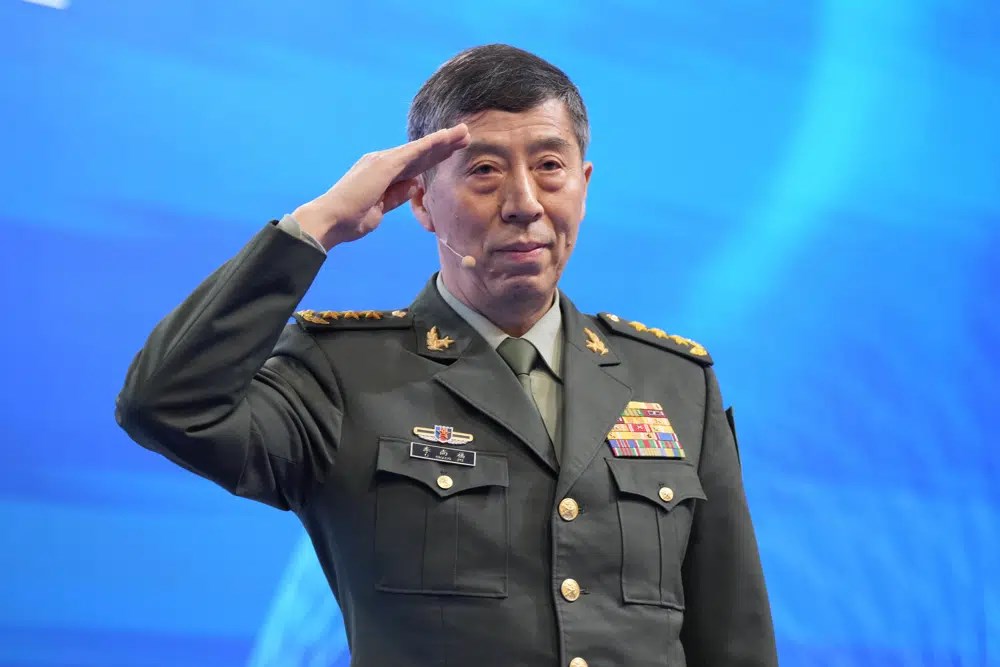China warns against 'NATO-like' alliances in Asia-Pacific
China's Defense Minister says the Asia-Pacific region needs to open up and take part in inclusive cooperation after the US stirred controversy in the South China Sea.
-

Chinese Minister of National Defense, Li Shangfu, performs a military salute before speaking at the Shangri-La Dialogue summit in Singapore, June 4, 2023. (AP)
China's Minister of National Defense, Li Shangfu, cautioned against the establishment of military alliances resembling NATO in the Asia-Pacific region, warning that such alliances would lead to a dangerous cycle of conflict.
"Attempts to push for NATO-like (alliances) in the Asia-Pacific is a way of kidnapping regional countries and exaggerating conflicts and confrontations," Li said at the top security summit in Singapore, the Shangri-La Dialogue, attended by US Defense Secretary Lloyd Austin.
Although Li did not name the countries concerned with building such alliances, his statements come at a time of increased US military activity in the region which could "plunge the Asia-Pacific into a whirlpool of disputes and conflicts."
"Today's Asia-Pacific needs open and inclusive cooperation, not buddying up into small cliques," the Chinese top official stressed at the security summit.
"We must not forget the severe disasters brought by the two world wars to peoples of all countries, and we must not allow such tragic history to repeat itself."
Trouble at the Taiwan Strait
Li's comments come shortly after a Chinese warship nearly collided with the USS Chung-Hoon in the Taiwan Strait as it entrenched into Chinese-claimed waters alongside the Royal Canadian Navy's HMCS Montreal.
"Chung-Hoon and Montreal's bilateral transit through the Taiwan Strait demonstrates the commitment of the United States and our allies and partners to a free and open Indo-Pacific," the US Navy claimed.
However, the crossing comes after China repeatedly decried the "illegal" intrusion" of US warships into waters it claims in the South China Sea.
Later, the Pentagon issued a statement warning against the "increasingly risky and coercive activities" in Asia, adding that the US will "remain concerned about the PLA's (People's Liberation Army) increasingly risky and coercive activities in the region, including in recent days."
Washington continues to frame its provocations to China as part of its commitment to a "free, open, and secure Indo-Pacific within a world of rules and rights" foregoing its continuous military expansion in the region.
US pushes for one-sided dialogue
Speaking at the top meeting on Saturday, the US Defense Secretary emphasized the necessity of open communication between US and Chinese defense and military leaders to avoid conflict and enhance stability in the Asia-Pacific region.
This comes after Minister of National Defense, Li Shangfu, earlier declined an invitation to meet Austin at the summit, highlighting his government's firm position against engaging in talks with the US amid the current situation. While a handshake occurred between the two officials during the conference, detailed discussions did not take place.
"I am deeply concerned that the PRC (People's Republic of China) has been unwilling to engage more seriously on better mechanisms for crisis management between our two militaries," the US Secretary of Defense said at a meeting in Singapore.

 3 Min Read
3 Min Read










